Latin GrammarGrammar, Vocabularies, and Exercises in Preparation for the Reading of the Missal and BreviaryCora Carroll Scanlon, A.M
Charles L. Scanlon. Copyright 1976 by TAN Books, an Imprint of Saint Benedict Press, LLC. Previously published in 1976 by TAN Books. Originally published in 1944 by B. Herder Book Co.
Library of Congress Catalog Card Number: 79-112494 ISBN: 978-0-89555-002-6 Typography is the property of TAN Books, and may not be reproduced without written permission from the publisher, except that brief selections may be quoted or copied for non-profit use without permission. TAN Books
Charlotte, North Carolina
www.TANBooks.com 2013 PREFACE This Latin grammar is intended for students who are entering seminaries or religious novitiates without previous study of Latin, for sisters in communities that recite the breviary, and for the growing number of lay people who use the Roman missal and the Roman breviary. Its twenty lessons, divided into fifty units, cover all the grammatical essentials for the intelligent reading of these two books. The vocabulary comprises the 914 words that make up the Ordinary of the Mass and the three Requiem Masses with their additional Collects, since these are the words that a daily user of the missal will encounter most frequently. However, to make the work as valuable as possible for those who use the missal in its entirety, as well as for those who wish to undertake the daily reading of the breviary, the Latin-English vocabulary at the end of the book includes not only all the words of the Roman missal, but also the complete vocabulary of the Roman breviary. Of the 914 words used throughout the twenty lessons, 476 have been distributed as regular lesson vocabularies.
The remaining 438 words have been grouped in those sections included in each lesson that are devoted to the study of cognates, derivatives, and compounds. Beginning with inclusive. These are taken from the Vulgate text of the New Testament and have been selected to give a short presentation of the life of Christ from His birth to the Resurrection. The Appendix contains irregular declensions, cardinal and ordinal numerals, the four regular conjugations complete, and the conjugations of the common irregular verbs. PRONUNCIATION 1. Vowels.
The pronunciation of the vowels is shown in the following table:  2. Diphthongs. The diphthongs are pronounced as follows:
2. Diphthongs. The diphthongs are pronounced as follows:  In a few instances the individual vowels of ae and oe are pronounced separately. In the vocabularies these instances will be shown by a diaeresis () over the second vowel. Mchal, poma. 3.
In a few instances the individual vowels of ae and oe are pronounced separately. In the vocabularies these instances will be shown by a diaeresis () over the second vowel. Mchal, poma. 3.
Consonants. They are pronounced as in English, with the following exceptions: 
 CONTENTS LESSON I UNIT ONE
CONTENTS LESSON I UNIT ONE
| Mea culpa, mea culpa, mea mxima culpa. | Through my fault, through my fault, through my most grievous fault |
Vocabulary
aqua, -ae, f.,
waternima, -ae, f.,
soulterra, -ae, f.,
earth, landtuba, -ae, f.,
trumpetvia, -ae, f.,
way, roadvita, -ae, f.,
lifeMara, -ae f.,
MaryLcia, -ae, f.,
Lucyculpa, -ae, f.,
fault, guiltet,
anda (ab) (with abl.),
from, bye (ex) (with abl.),
out of, fromcum (with abl.),
within (with abl.),
in, onin (with acc.),
against, into, untoad (with acc.),
to, toward, near1. Declension. In English a noun changes its form only to indicate possession (the possessive case) or to express plural number. In form the nominative and objective cases are the same.
| The man is here. | I saw the man. |
| The mans hat. | The men are here. |
In Latin the noun usually changes its form for each case and there are five of these: nominative (nom.), genitive (gen.), dative (dat.), accusative (acc.), and ablative (abl.).
In addition, adjectives, as well as nouns, in Latin change their forms to indicate their case, gender, or number, for all adjectives must be made to agree in case, gender, and number with the noun modified. To decline a noun or adjective means to give its forms in the right order and all these forms taken together constitute what is called a declension. There are five declensions in Latin, that is, all nouns may be assembled into five distinct classes or groups, which are distinguished from one another by the ending of the genitive singular. 2. Gender. In English the gender of a noun depends upon the sex to which it refers.
The noun prince is masculine gender because it refers to a male; the noun women is feminine gender because it indicates females; all sexless objects (for example, chair) are said to belong to the neuter gender. Many nouns that are classified in English as neuters may be masculine or feminine in Latin. 3. First declension. All nouns that have the genitive singular ending -ae belong to the first declension. Most of the nouns of this declension are of the feminine gender.
The following case endings are added to the base:
| Singular | Plural |
| Nom. | -a | -ae |
| Gen. | -ae | -arum |
| Dat. | -ae | -is |
| Acc. | -am | -as |
| Abl. | -a | -is |
The ablative may have various meanings: by, from, out of, with, in, etc.
aqua (base,
aqu-),
water| Singular | Plural |
| Nom. | aquathe water | aquaethe waters |
| Gen. | aquaeof the water | aqurumof the waters |
| Dat. | aquaefor the water | aquisfor the waters |
| Acc. | aquamthe water | aquasthe waters |
| Abl. | aquain the water | aquisin the waters |
,
the good water| Nom. | aqua bona | aquae bonae |
| Gen. | aquae bonae | aqurum bonrum |
| Dat. | aquae bonae | aquis bonis |
| Acc. | |




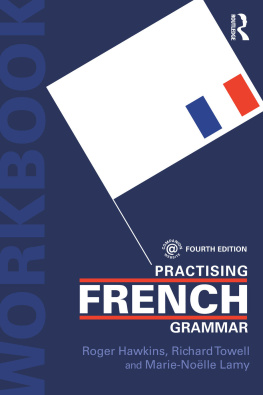
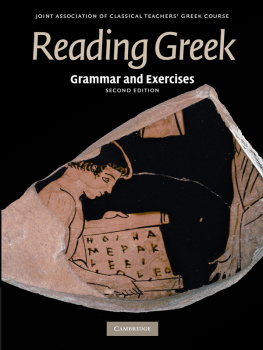
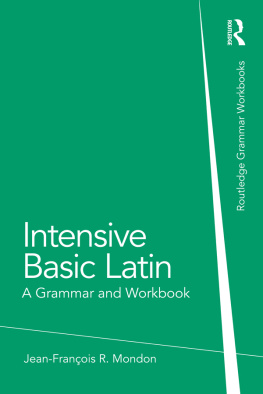
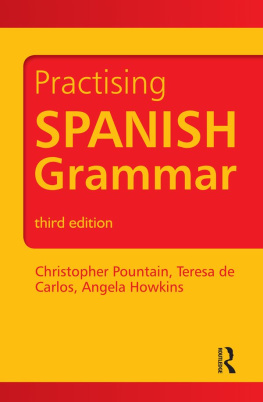
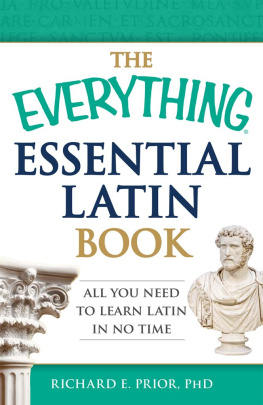
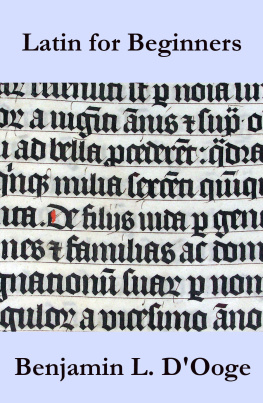
 2. Diphthongs. The diphthongs are pronounced as follows:
2. Diphthongs. The diphthongs are pronounced as follows:  In a few instances the individual vowels of ae and oe are pronounced separately. In the vocabularies these instances will be shown by a diaeresis () over the second vowel. Mchal, poma. 3.
In a few instances the individual vowels of ae and oe are pronounced separately. In the vocabularies these instances will be shown by a diaeresis () over the second vowel. Mchal, poma. 3.
 CONTENTS LESSON I UNIT ONE
CONTENTS LESSON I UNIT ONE